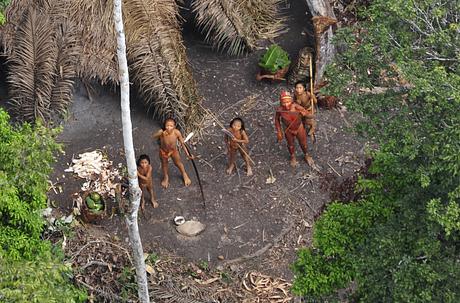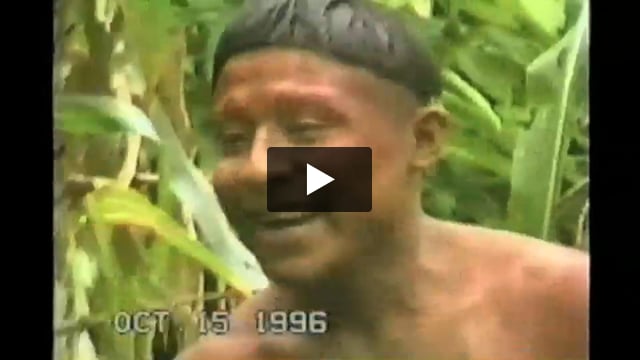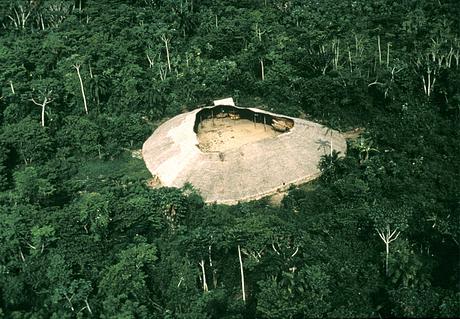Revealed: Bolsonaro’s plan to wipe out “the world’s most vulnerable uncontacted tribes”
May 19, 2021
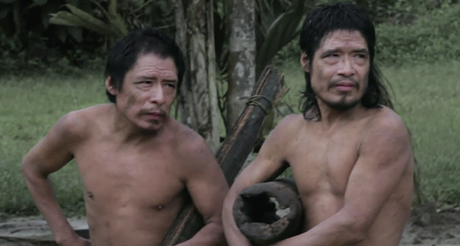 © Bruno Jorge
© Bruno JorgeThis page was last updated in 2021 and may contain language which is now outdated.
The Brazilian government is planning to open up the land of uncontacted tribes to deadly exploitation, by scrapping the emergency orders that currently protect their territories.
Experts say the plan could drive several uncontacted tribes to extinction, and destroy around 1 million hectares of rainforest – an area twice the size of Delaware.
These tribes are especially vulnerable as their territories are not officially mapped out and protected. Currently the only thing standing between them and well-funded and heavily-armed loggers, ranchers and land-grabbers are the orders (known in Brazil as “Restrições de uso” injunctions).
Seven territories are currently protected by these orders, most of which have to be renewed every few years. Three of them are due to expire between September and December 2021, and are particularly vulnerable.
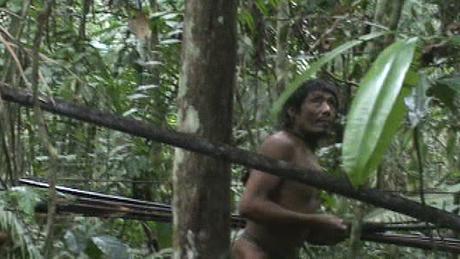 © FUNAI
© FUNAI
One of these protects the forest home of the last of the Piripkura tribe – after a series of massacres only three members of this tribe are known to exist, though some studies indicate others may still survive in the depths of the forest. A recent study by Brazilian NGO ISA showed that 962 hectares of forest in the Piripkura territory were razed last year, the equivalent of more than 1,000 football pitches.
President Bolsonaro and allies are targeting these tribes’ territories, which remain vulnerable until they are fully demarcated as Indigenous lands. A Senator close to Bolsonaro, for example, is demanding that the Ituna Itatá territory be dramatically reduced in size, while state and federal politicians allied to powerful logging, ranching and agribusiness interests target other territories. President Bolsonaro is highly sympathetic to these deadly land-grabbing efforts, and has explicitly said he wants to open up all Indigenous territories for exploitation.
COIAB (the Coordinating Body of Indigenous Organizations of the Brazilian Amazon), OPI (Human Rights Watch of Isolated and Initial Contact Indigenous Peoples) and Survival – today launched a new video to expose Bolsonaro’s plan. They’re calling for the Brazilian government to renew the Land Protection Orders; evict all invaders; fully protect the territories; and #StopBrazilsGenocide.
Angela Kaxuyana, one of COIAB’s Coordinators, said today: “No more massacres! We won’t allow any more invasions! It’s vital that Indigenous peoples and the organizations of the Amazon, and all civil society, mobilize to prevent the territories where the isolated Indigenous peoples live from being handed over to loggers, land grabbers, gold miners and other forest predators to destroy. If the Bolsonaro government ends the Land Protection Orders, it will be yet another disaster and attack against the lives of these peoples, which is part of the grand plan to dismantle the Indigenous policy in our country.
“We need to prevent more lives from being lost in this (un)government, we’ll carry on defending our rights to life, and those of our relatives who live autonomously in their territories.”
Fabrício Amorim of OPI said: “Land Protection Orders are a cutting-edge tool of public policy in Brazil, which can be deployed quickly to safeguard the lives and land rights of uncontacted Indigenous peoples. They’re the highest expression of the precautionary principle, provided for in national and international laws. Doing away with them will mean the extermination of Indigenous peoples, or some groups of them, without there even being time to recognize their existence in order to guarantee their rights. It will silence little-known lives and impoverish humanity. Therefore, it’s vital to strengthen these instruments, start demarcating these areas and remove all invaders.”
Elias Bígio, former head of the Uncontacted Tribes unit at Brazil’s Indigenous Affairs Agency FUNAI, said today: “The Piripkura’s land has been occupied by aggressive and violent people who are destroying the environment and threatening everyone.
“The uncontacted Piripkura have shown that they don’t want contact. They don’t have the security of contact with ‘our’ society, given the traumatic relationship they’ve had with the invaders. They’re there in the forest, and they’ve devised strategies to protect themselves and survive. They’ve managed to survive and are there, hidden, restricted to a small territory, and claiming this territory for themselves.”
Sarah Shenker, Coordinator of Survival’s Uncontacted Tribes campaign, said today: “The future of several uncontacted tribes living in territories shielded by emergency Land Protection Orders will be decided this year. They have already experienced land theft and appalling violence and killings at the hands of outsiders. The orders are currently the only thing standing between them and certain death.
“The ranchers’ and politicians’ plot to rip up the orders, steal these lands, and wipe out the uncontacted tribes who live there, is one branch of many in the Bolsonaro government’s genocidal attack on Brazil’s Indigenous peoples, and it must be blocked. Over the coming months, uncontacted tribes’ allies in Brazil and around the world will be campaigning non-stop for the orders to be renewed, all invaders evicted, and the forests to be fully protected. Only then can the uncontacted tribes survive and thrive.”
Notes to Editors
- Representatives from COIAB, OPAN, OPI and Survival are available for interview.
- The uncontacted tribal territories currently shielded by the Land Protection Orders are:
Territory | Expiration date | Area in Hectares
Piripkura (Mato Grosso) | 18 Sep 2021 | 243,000
Jacareúba/Katawixi (Amazonas) | 08 Dec 2021 | 647,000
Pirititi (Roraima) | 05 Dec 2021 | 43,000
Ituna Itatá (Pará) | 09 Jan 2022 | 142,000
Tanaru (Rondonia) | 26 Oct 2025 | 8,000
Igarapé Taboca do Alto Tarauacá (Acre) | Until the demarcation process is complete | 287
Kawahiva do Rio Pardo (Mato Grosso) | Until the demarcation process is complete | 412,000


